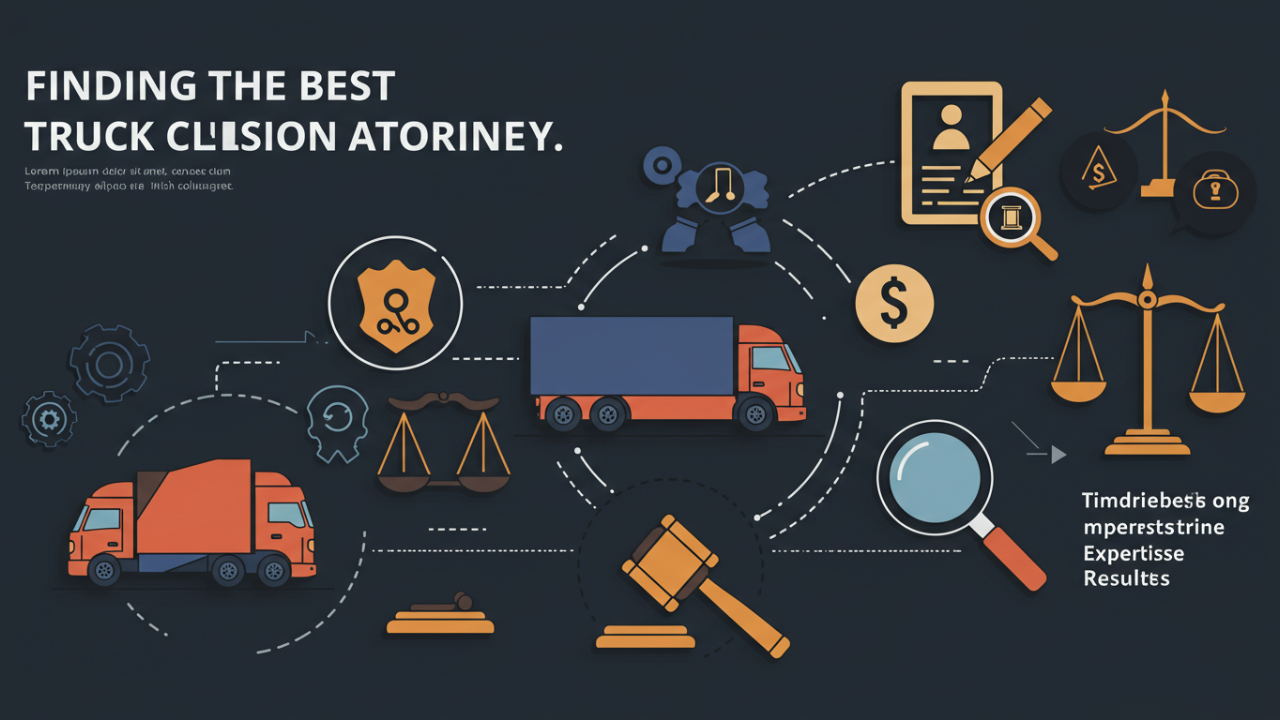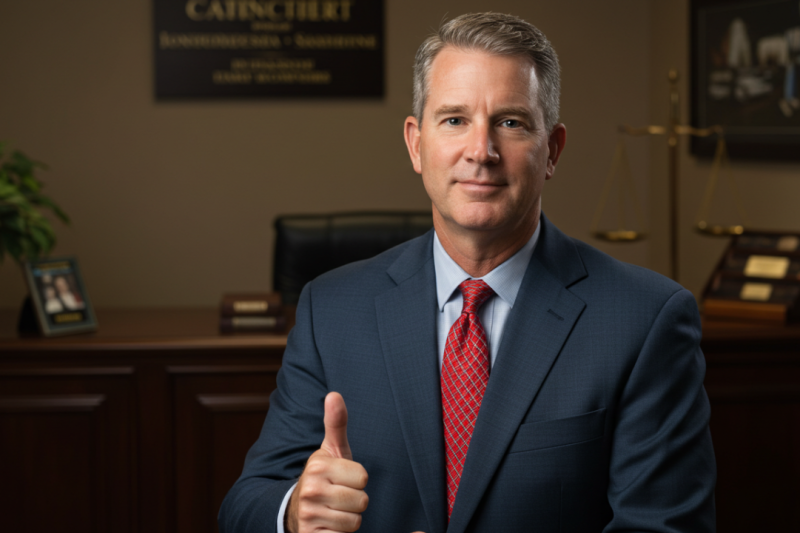Introduction
Truck collisions involving big rigs, such as semi-trucks or commercial vehicles, often result in severe consequences due to the size and weight disparity between these vehicles and standard passenger cars. These incidents can lead to catastrophic injuries, extensive property damage, and complex legal proceedings. Securing appropriate legal representation is essential for navigating the intricacies of such claims, ensuring that victims receive fair compensation for medical expenses, lost wages, and other damages. This article provides a comprehensive guide to locating and selecting a qualified truck collision attorney in your area, while addressing key considerations and offering practical advice to support informed decision-making.
Understanding Big Rig Collision Claims
Big rig claims differ significantly from typical automobile accidents due to commercial entities’ involvement and federal regulations. Common challenges include determining liability among multiple parties, such as the driver, trucking company, vehicle manufacturer, or cargo loaders. Violations of safety standards, like exceeding driving hours or inadequate maintenance, frequently contribute to these incidents and can strengthen a claim.
Key Statistics on Truck Collisions
According to data from the Insurance Institute for Highway Safety, in 2023, a total of 4,354 individuals perished in large truck crashes across the United States. Of these fatalities, 65% involved occupants of passenger vehicles, underscoring the disproportionate impact on non-commercial drivers. Additionally, the National Safety Council reported 5,472 deaths from large-truck crashes in the same year, marking an 8% decrease from 2022 but a 40% increase over the past decade. These figures highlight the urgency of pursuing expert legal assistance to address the heightened risks and complexities.

Unique Legal Challenges
Claims often involve analyzing extensive evidence, including driver logs, black box data, and maintenance records. Proving negligence requires demonstrating care-duty breaches, such as failure to adhere to Federal Motor Carrier Safety Administration guidelines. Moreover, insurance companies representing trucking firms may employ aggressive tactics to minimize payouts, necessitating robust advocacy to counter these strategies.
Steps to Take Immediately After a Truck Collision
Prompt actions following a collision can significantly influence the outcome of a claim. Prioritize safety and documentation to preserve evidence and protect your rights.
Ensure Safety and Seek Medical Attention
First, assess injuries to yourself and others involved. Contact emergency services by dialing 911 to report the incident and request medical assistance. Even if injuries appear minor, obtain a professional evaluation, as symptoms like concussions or internal damage may manifest later. Medical records serve as critical evidence linking injuries to the collision.
Document the Scene Thoroughly
If physically able, gather information at the site. Exchange details with the truck driver, including their name, contact information, license number, and employer’s details. Photograph the vehicles from multiple angles, capturing damage, skid marks, road conditions, and surrounding signage. Note weather and traffic factors that may have contributed. Collect witness statements and contact information, as impartial accounts can corroborate your narrative.
Report the Incident and Avoid Admissions
Cooperate with law enforcement to facilitate an official accident report, which provides an unbiased record. Refrain from discussing fault or providing statements to insurance representatives without legal counsel, as such communications could inadvertently weaken your position. Notify your insurer promptly, but limit details to factual basics.
Preserve Additional Evidence
Retain all related documents, such as medical bills, repair estimates, and correspondence. Avoid repairing your vehicle until your insurer approves, and document any towing or storage fees. These steps help build a strong foundation for your claim.
Why Hire a Specialized Truck Collision Attorney
General personal injury lawyers may lack the nuanced expertise required for big rig cases involving intricate federal and state regulations. A specialized attorney understands trucking industry standards, can identify liable parties, and has experience negotiating with large insurers. Their involvement often leads to higher settlements, as they can leverage accident reconstruction experts and regulatory knowledge to substantiate claims.
How to Find the Best Truck Collision Attorney Near You
Locating a competent attorney requires systematic research. Begin by seeking referrals from trusted sources, such as colleagues or medical professionals familiar with accident cases. Online directories from bar associations or specialized legal networks can also yield candidates.
Evaluate Credentials and Experience
Prioritize attorneys with a proven track record in truck collision litigation. Review their certification in relevant areas, such as board certification in truck accident law by organizations like the National Board of Trial Advocacy. Assess the number of similar cases handled, including those resolved through trial, as this indicates courtroom proficiency.
Research Reputation and Resources
Examine client reviews on platforms like Avvo or Martindale-Hubbell for insights into responsiveness and outcomes. Inquire about the firm’s resources, such as access to investigators or experts in accident reconstruction. Local bar associations can confirm any disciplinary history.
Consider Location and Accessibility
Opt for an attorney practicing in your state, as laws vary by jurisdiction. Proximity facilitates in-person meetings, though many firms offer virtual consultations. Ensure the attorney is accessible for updates and questions throughout the process.
Preparing for Your Initial Consultation
The consultation is an opportunity to assess compatibility and strategy. Most attorneys offer free initial meetings on a contingency basis, meaning fees are only collected upon successful recovery.
Questions to Ask During the Consultation
Inquire about their experience with truck cases, including success rates and average settlements. Ask how they determine liability and their strategy for your situation. Discuss communication protocols, fee structures, and whether they handle cases personally or delegate to associates. Probe their familiarity with trucking regulations and potential challenges specific to big rig claims.
What to Bring
Prepare by bringing the police report, medical records, photos, witness information, and insurance details. This allows the attorney to provide a preliminary assessment of your claim’s viability.
Navigating the Big Rig Claims Process
Once retained, your attorney will investigate the incident, gather evidence, and negotiate with insurers. The process may involve filing a lawsuit if settlement offers are inadequate, potentially leading to discovery, mediation, or trial. Expect timelines ranging from months to years, depending on complexity. Compensation may cover economic damages like medical costs and non-economic ones like pain and suffering.
FAQ
What is the statute of limitations for filing a big rig claim?
This varies by state, typically one to six years from the accident date. Consult an attorney promptly to avoid missing deadlines.
How much does hiring a truck collision attorney cost?
Most operate on a contingency fee basis, taking a percentage (often 25-40%) of the settlement or award, with no upfront costs.
Can I handle a big rig claim without an attorney?
While possible, it is inadvisable due to the complexity and resources of opposing parties. Professional representation increases the likelihood of favorable outcomes.
What if the trucking company denies liability?
Your attorney can use evidence like black box data or expert testimony to challenge denials and establish fault.
How long does it take to resolve a big rig claim?
Resolution may take several months for straightforward settlements or up to two years or more if litigation is required.



